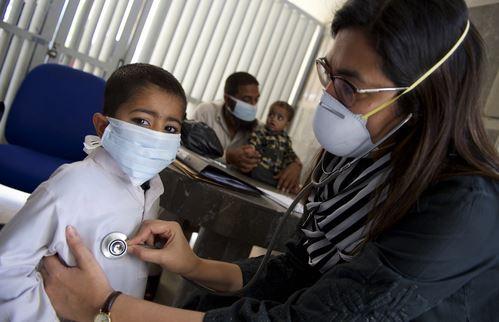
During this month's annual European Society of Clinical Microbiology and Infectious Diseases (ESCMID Global) conference in Spain, UK researchers will present evidence that patients successfully treated for tuberculosis (TB) have lasting lung damage, including smaller lungs with narrower airways and slower air flow.
The findings are based on a meta-analysis of data collected on 75,631 people from 15 studies conducted in 17 countries with varying TB incidence and income levels from 2000 through 2023. Of the 75,631 study participants, 7,377 were TB survivors.
Four measures of lung functions were included in the analysis: Forced expiratory volume in 1 second (FEV1, the volume of air that can be forcefully exhaled in one second); forced vital capacity (FVC, the volume of air that can be forcefully exhaled in a single breath); FEV1/FVC ratio; and FVC as a percentage of the predicted value (compares the volume to the average of a healthy person of the same age, sex, and height).
Lung injury poses public health challenge
"FEV1 was 230 millilitres lower compared to healthy controls, and FVC was 140 millilitres lower," said lead researcher Dr Sharenja Ratnakumar, of the University of London, in a press release from ESCMID Global. "A decrease in FEV1 of 100 millilitres is considered clinically significant and is associated with an increased risk of cardiovascular and respiratory disease."
While the treatment of acute TB has been the main clinical focus for the past several decades, the authors said it's time to recognize the toll of post-TB lung disease. Between 2000 and 2020, an estimated 74 million lives were saved after successful TB treatment, with many patients under the age of 50. The burden of post-TB lung damages is not yet known, the authors said, and likely poses a significant public health challenge.
Our study also provides compelling evidence that the long-term care of individuals with post-tuberculosis lung disease should be an explicit component of the WHO's End TB strategy.
"Our study also provides compelling evidence that the long-term care of individuals with post-tuberculosis lung disease should be an explicit component of the WHO's End TB strategy," Ratnakumar said.
.jpg)













